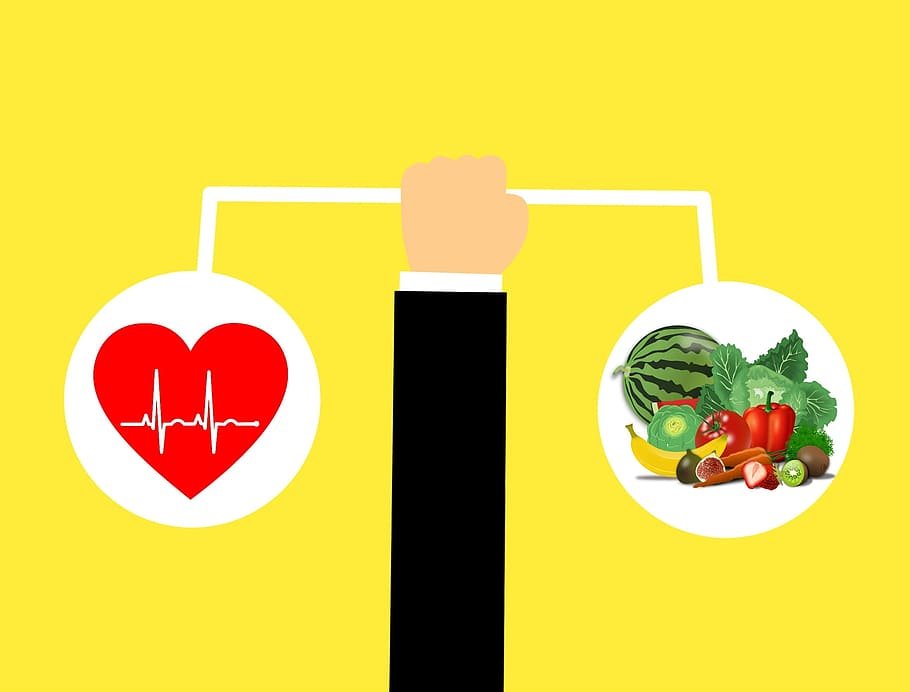Healthy eating is more than just a diet; it is a lifestyle choice that contributes to overall well-being. A nutritious diet helps in maintaining a healthy body, reducing the risk of chronic diseases, and improving mental and physical health. The right combination of nutrients ensures that the body functions efficiently, leading to a more energetic and fulfilling life.
Why is Healthy Eating Important?
Eating a balanced diet is essential for maintaining good health. Proper nutrition provides the body with essential vitamins, minerals, and other nutrients that help in growth, repair, and disease prevention. Some of the key benefits of healthy eating include:
- Weight Management: Eating healthy helps in maintaining an ideal body weight and preventing obesity.
- Better Heart Health: A diet rich in healthy fats, fiber, and lean proteins can reduce the risk of heart disease.
- Stronger Immunity: Nutrient-rich foods boost the immune system, helping the body fight infections.
- Increased Energy Levels: Proper nutrition fuels the body and keeps you active throughout the day.
- Improved Mental Health: A healthy diet can reduce stress, anxiety, and depression while improving focus and concentration.
Key Components of a Healthy Diet
A well-balanced diet includes a variety of food groups that provide essential nutrients. Here are the key components of a healthy diet:
- Fruits and Vegetables: These are rich in vitamins, minerals, fiber, and antioxidants that support overall health.
- Whole Grains: Brown rice, whole wheat, oats, and quinoa provide complex carbohydrates that supply long-lasting energy.
- Lean Proteins: Sources like chicken, fish, eggs, beans, and nuts help in muscle repair and overall body function.
- Healthy Fats: Avocados, nuts, olive oil, and fatty fish provide essential fats that support heart and brain health.
- Dairy or Alternatives: Milk, yogurt, and plant-based alternatives like almond or soy milk provide calcium and protein.
- Water: Staying hydrated is crucial for digestion, circulation, and detoxification.
Unhealthy Eating Habits to Avoid
While eating healthy is important, avoiding unhealthy habits is equally necessary. Here are some common unhealthy eating habits to watch out for:
- Skipping Meals: Not eating at regular intervals can slow down metabolism and lead to overeating later.
- Consuming Too Much Sugar: Sugary drinks and processed foods increase the risk of obesity, diabetes, and heart disease.
- Eating Processed and Junk Food: These foods contain unhealthy fats, preservatives, and high sodium levels that can harm your health.
- Overeating: Eating more than necessary can lead to weight gain and digestive issues.
- Not Drinking Enough Water: Dehydration can cause fatigue, headaches, and poor digestion.
Tips for Maintaining Healthy Eating Habits
Developing and maintaining healthy eating habits can be easy with the right approach. Here are some useful tips:
- Plan your meals in advance to ensure a balanced diet.
- Include a variety of colorful fruits and vegetables in your daily meals.
- Control portion sizes to prevent overeating.
- Replace unhealthy snacks with healthier options like nuts, seeds, and yogurt.
- Stay hydrated by drinking at least 8-10 glasses of water daily.
- Avoid eating late at night to allow proper digestion.
Conclusion
Healthy eating is a crucial aspect of a healthy lifestyle. By making mindful food choices and maintaining a well-balanced diet, you can improve your overall health, prevent diseases, and live a longer, more fulfilling life. Start incorporating healthy habits today and experience the benefits of a nutritious diet.

